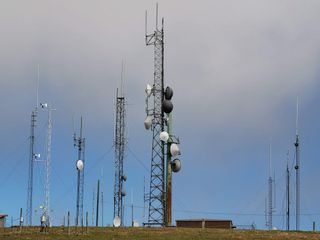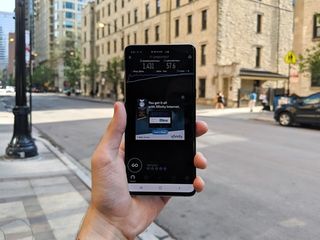Will 5G impact weather forecasting? A UN conference aims to find out

What you need to know
- The 24GHz range of wireless communications is already used for weather forecasting, but the new 5G spectrum could soon interfere with that.
- The World Radiocommunication Conference is being held right now in Egypt to address this, and many other concerns, about the future of 5G.
- While 5G rollout has begun, it's not in enough places to potentially impact weather forecasting just yet, but that's likely to come in a few years if restrictions aren't put in place worldwide.
While it's probably a bit far-fetched to think a groundhog might deliver more accurate weather predictions than modern technology, a UN summit in Egypt is now convening to determine the future spectrum usage of 5G technology worldwide. What's the deal? In a nutshell, meteorologists monitor water vapor molecules using the 23.8Ghz frequency, while 5G networks are slated to operate in and around that same 24GHz spectrum. You can see how a problem could quickly occur.
While this operational frequency was chosen just outside of the natural range that water vapor molecules are measured at, scientists at the National Oceanic and Atmospheric Administration (NOAA) warn that this close proximity could lead to significant errors in weather forecasting and data collection equipment. Meanwhile, many industry experts, including FCC Chairman Ajit Pai, claim that possible interfering techniques like beamforming and millimeter-wave deployments are only isolated to dense areas (i.e. large cities), and won't be an issue for meteorological equipment.
5G mobile networks operate at several different spectrums above what traditional 4G networks do, owing to the fact that 4G spectrum covers much of the usable low end of the wireless spectrum. As is the case with any publicly usable spectrum, the Federal Communications Commission (FCC) of the U.S. and other similar agencies worldwide auction off the use of spectrum to different entities, such as telecommunications companies.
The problem comes in the control part of the auction. As of the latest auctions, the FCC isn't requiring strict limits on spectrum leaking, owing to the fact that 5G technology needs this additional spectrum to operate as intended. We've covered this issue recently and went over whether or not 5G was a safe technology, and it's clear we weren't the only ones thinking about this potential issue.

Many meteorologists are rightfully concerned that their expensive equipment might begin reading weather patterns that don't exist (or missing patterns that are forming), and have taken it to the World Radiocommunication Conference in Egypt, which is beginning today, October 28.
This conference is organized by the United Nations International Telecommunication Union, but unlike the previous conference in 2015, many nations, like the U.S., are coming to the table with their own decisions already made. Some agree that the issue can be controlled by lowering the power output to less than -20 decibel watts per 200 megahertz. Given the extremely short range of 5G when compared to previous wireless technology, this means that additional microcells may need to be added to form a more complete 5G network without interfering with weather forecasting.
While the impacts of any decision made at the convention are likely not to be seen for years to come, the 5G build-out is happening now, and it's only a matter of time before any poorly made decision could seriously negatively impact the world population at large, especially when it comes to predictions that usher in evacuations for serious weather threats.
Be an expert in 5 minutes
Get the latest news from Android Central, your trusted companion in the world of Android

